- myFICO® Forums
- Types of Credit
- Credit Cards
- Re: How do people with 10+ CC manage them all?
- Subscribe to RSS Feed
- Mark Topic as New
- Mark Topic as Read
- Float this Topic for Current User
- Bookmark
- Subscribe
- Mute
- Printer Friendly Page
How do you guys manage so many cards?
Is your credit card giving you the perks you want?
Browse credit cards from a variety of issuers to see if there's a better card for you.
- Mark as New
- Bookmark
- Subscribe
- Mute
- Subscribe to RSS Feed
- Permalink
- Report Inappropriate Content
Re: How do you guys manage so many cards?
@Anonymous wrote:I have 24 cards (5 being retail). If I could go back in time I wouldn't have gotten that many. I was young and dumb and didn't know any better. If I could go back in time I would only have 5 or less. Once I get my house I'm closing the subprime ones.
... Which leads to a side-commentary about having "so many cards." There are some out there who are collecting cards, limits, and/or SUBs as basically a hobby or for the gamesmanship of it all. And maybe to see how far they can push their profile or earnings.
While there's nothing wrong with that, there's a point where, for most of us, that just becomes too much work and too much complexity. It becomes a personal matter of how it all affects your life and your finances. Some people want to keep their cards to the bare-bones minimum of about 3 cards which seems to be about the least to have to build or maintain a credit score. Others don't mind managing 50 or more. Most of us fall somewhere in between.
Those subprime and/or retail cards served their purpose, @Anonymous. No need to regret them since they probably helped you build your credit file and score. But like you said, the subprimes can easily be closed now. As for the retail cards, I have always chosen to be selective about them and a few years ago, got rid of mine entirely. Unless you shop frequently at a store, they can just be more to keep up with and are quickly closed by the lenders (sometimes without notice) when not used.
We talk about "gardening" to let our accounts grow without "planting" (opening) new accounts. But a part of gardening is also weeding out. I've probably closed (or had closed) many more cards than I currently have open. Sometimes, we need to clean out, simplify, and determine what is serving a useful purpose. It's not my intent to open and maintain cards that don't benefit me in some way(s). When I've cleaned out before, I listed my cards and looked at account age (keeping old accounts open if they could be useful), credit limits/utilization, rewards, Diversity of lenders, and APRs. I have four accounts that are over 20 years old that anchor my Average Age of Accounts. I have some high limit cards over $50K. I have tried to improve upon my rewards options over the years. And I've opened some low-APR cards that give me flexibility on payments in case I ever need that option. Meanwhile, I've also diversified with cards from new lenders which helps to insulate me from any adverse action from one lender.
So unless you're just in it for seeing how many cards you can get, it's a good idea at times to pause and reevaluate an overall game plan that suits your spending, lifestyle, and preferences.






















Business Cards









Length of Credit > 40 years; Total Credit Limits >$936K
Top Lender TCL - Chase 156.4 - BofA 99.9 - CITI 96.5 - AMEX 95.0 - NFCU 80.0 - SYCH - 65.0
AoOA > 31 years (Jun 1993); AoYA (Oct 2024)
* Hover cursor over cards to see name & CL, or press & hold on mobile app.
- Mark as New
- Bookmark
- Subscribe
- Mute
- Subscribe to RSS Feed
- Permalink
- Report Inappropriate Content
Re: How do you guys manage so many cards?
@Aim_High wrote:
@Anonymous wrote:I have 24 cards (5 being retail). If I could go back in time I wouldn't have gotten that many. I was young and dumb and didn't know any better. If I could go back in time I would only have 5 or less. Once I get my house I'm closing the subprime ones.
... Which leads to a side-commentary about having "so many cards." There are some out there who are collecting cards, limits, and/or SUBs as basically a hobby or for the gamesmanship of it all. And maybe to see how far they can push their profile or earnings.
While there's nothing wrong with that, there's a point where, for most of us, that just becomes too much work and too much complexity. It becomes a personal matter of how it all affects your life and your finances. Some people want to keep their cards to the bare-bones minimum of about 3 cards which seems to be about the least to have to build or maintain a credit score. Others don't mind managing 50 or more. Most of us fall somewhere in between.
Those subprime and/or retail cards served their purpose, @Anonymous. No need to regret them since they probably helped you build your credit file and score. But like you said, the subprimes can easily be closed now. As for the retail cards, I have always chosen to be selective about them and a few years ago, got rid of mine entirely. Unless you shop frequently at a store, they can just be more to keep up with and are quickly closed when not used.
We talk about "gardening" to let our account grow without "planting" (opening) new accounts. But a part of gardening is also weeding out. I've probably closed (or had closed) many more cards than I currently have open. Sometimes, we need to clean out, simplify, and determine what is serving a useful purpose. It's not my intent to open and maintain cards that don't benefit me in some way(s). When I've cleaned out before, I listed my cards and looked at account age (keeping old accounts open if they could be useful), credit limits/utilization, rewards, Diversity of lenders, and APRs. I have four accounts that are over 20 years old that anchor my Average Age of Accounts. I have some high limit cards over $50K. I have tried to improve upon my rewards options over the years. And I've opened some low-APR cards that give me flexibility on payments in case I ever need that option. Meanwhile, I've also diversified with cards from new lenders which helps to insulate me from any adverse action from one lender.
So unless you're just in it for seeing how many cards you can get, it's a good idea at times to pause and reevaluate an overall game plan that suits your spending, lifestyle, and preferences.
I completely agree with the thought process explained by @Aim_High .
I've been through many phases during my credit life. I started out with retail store and gas cards. Later, I sought out low APR cards followed by airline miles. When large signup bonuses started to become "a thing", I collected many multiples of travel points. With the pandemic, I'm now focused on cash back and gardening.
Recently, I added a new worksheet to my credit card management spreadsheet. The worksheet helps me rank the importance of each card. I rank each card based on its contribution to age, utilization, rewards, and perks. The most important cards must be nurtured. The least important can be jettisoned in the name of simplicity.
FICO8:




FICO9:

VantageScore3:



Inquiries (n/12, n/24):



AAoA: 11 yrs | AoORA: 38 yrs | AoYRA: less than 1 yr | New Accounts: 1/6, 2/12, 3/24 | Util: 1% | DTI: 1%














- Mark as New
- Bookmark
- Subscribe
- Mute
- Subscribe to RSS Feed
- Permalink
- Report Inappropriate Content
Re: How do you guys manage so many cards?
Bill pay and a spreadsheet. lol I have about 20 cards with over $167k in available credit. ALso, it is easy to set up recurring charges online now as there is a subscription for everything. I recall having to purchase software outright. Now, everything is online via subscription including Adobe photo tools, Offive 365, etc. Spread out the love and you can keep all cards open with low util.
- Mark as New
- Bookmark
- Subscribe
- Mute
- Subscribe to RSS Feed
- Permalink
- Report Inappropriate Content
Re: How do you guys manage so many cards?
Great advice on this post! Thanks
- Mark as New
- Bookmark
- Subscribe
- Mute
- Subscribe to RSS Feed
- Permalink
- Report Inappropriate Content
How do people with 10+ CC manage them all?
I see quite a few people on here with signatures showing 10+ (sometimes even 20+) credit cards. I am wondering how you all manage do use them all regularly (I assume monthly or close to so they don't get closed down). I can see the obvious benefit if you pay them down to zero each month/having a higher total but do lenders and other credit companies see this as a negative in any way?
- Mark as New
- Bookmark
- Subscribe
- Mute
- Subscribe to RSS Feed
- Permalink
- Report Inappropriate Content
Re: How do people with 10+ CC manage them all?
I have 12. A lot of people have more than that. Answering for myself:
I take time every day to log in on my phone and/or computer to look at accounts I have used recently. I also occasionally check accounts I don't think I've used recently, not daily but maybe weekly, in case I missed anything. For example, I generally only use my Apple Card for a small monthly Apple cloud hosting fee, so checking it every day would be overkill, but I still check it at least once a week. I also don't check Amazon every day, since I know it'll be a steady flow of small charges, so I check that more like weekly also. I pay when I see I have a balance. I am not super careful about using cards around when statements close, so cards I use frequently (Amazon, Amex Gold, PPMC) tend to have small balances when they report. I don't spend a lot of time worrying about AZEO but I would rather have one or more small balances report than everything report $0. If I have pending charges, I will check back tomorrow and each day until it posts, and then pay it. If I miss a day, I still have plenty of time to catch it the day after.
I use cards based on which has the best reward for that particular type of spend, or if I've recently added a card, I may focus on qualifying for a welcome offer/SUB.
I use my signature here as a reminder to check every card, if in doubt.
You have to approach it a bit like a hobby you enjoy for it to make sense. I think for the average person, just getting about three cards probably makes more sense. That said, for me, it's not a problem, and it hasn't led to any serious errors on my part. The worst that happens is that I forget when a statement closes and end up with either all-zero, or with a card reporting a balance I did not intend it to report, but as my scores have gotten less volatile, that is a smaller issue than it was a year ago.
JMO YMMV!



FICO Resilience Index: 64. Cards: 5/24, 2/12, 2/6. Accounts including loans: 8/24, 4/12, 3/6. Card CLs total $213,900, or $240,400 including the AU card. Cards (oldest to newest)


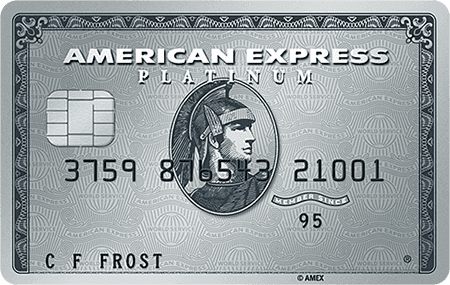
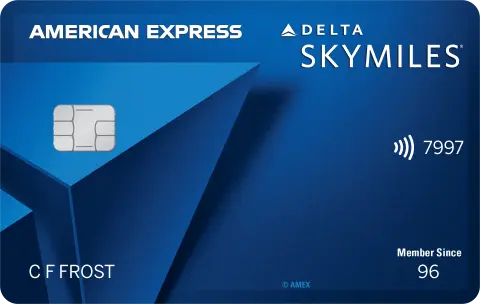
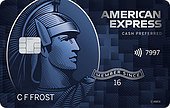

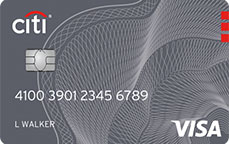





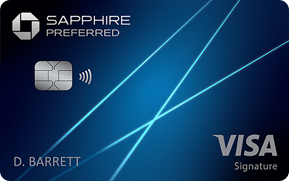
Authorized user / Corporate / Auto loans / Personal loan
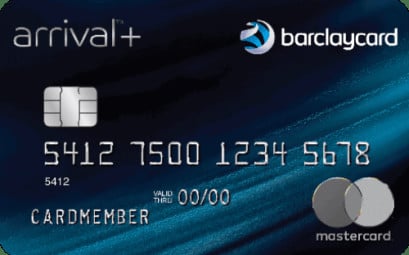




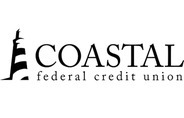
- Mark as New
- Bookmark
- Subscribe
- Mute
- Subscribe to RSS Feed
- Permalink
- Report Inappropriate Content
Re: How do people with 10+ CC manage them all?
This is one of the more common questions here. A fairly recent thread (which also chose 10+) is
https://ficoforums.myfico.com/t5/Credit-Cards/How-do-you-guys-manage-so-many-cards/m-p/6171291
- Mark as New
- Bookmark
- Subscribe
- Mute
- Subscribe to RSS Feed
- Permalink
- Report Inappropriate Content
Re: How do people with 10+ CC manage them all?
I'm the opposite of most MFers, with just 3 cards with low to moderate limits. But some of the same strategies still apply.
2 of my cards are with the same lender (Chase). Those with many cards will probably have several per lender, which reduces the number of logins and places to check. I can log into Chase and review 2 of my cards at once.
I staggered my due dates so I can more easily practice AZEO (more important with few cards than many). I schedule my payments on or before the due date, but since I always pay before statement cut I'm really paying a month ahead. This allows for lower reported utilization and AZEO while still using all cards, and it also shields me from any "inadvertent" late payments, since I'm always a month ahead. If I'm "late" I still have a month to fix it. If I had more than 3 cards, I'd probably cluster them so that I have 2 times per month that payment(s) are due.
For those on semi monthly or monthly payroll (where you get paid the same days each month), it makes sense to schedule due dates around this, but bi-weekly means paydays shift month to month. Therefore, my staggered system works best for me. Also, having spent less in the past year due to the pandemic, I have extra cash in my checking, more than my total CL now, so I always have enough cash to PIF any card at any time regardless of balance.
While most MFers shoot for the moon in terms of limits, I keep mine low on purpose, so I don't spend beyond my means, but also as a fraud protection. Even in the unlikely worst case scenario of all 3 cards being stolen and maxed out, and auto pay paying them automagically, I wouldn't get overdrawn. (One maxed-out high limit card + full balance autopay could create a big mess).
With only 3 cards, I don't bother with autopay. I push payments from my CU so my checking info isn't in a bunch of places. With being a month ahead even if I ended up in the hospital, I'd have to be out of commission for well over a month before it becomes a problem, and at that point, I have bigger problems than a late CC payment anyway.
- Mark as New
- Bookmark
- Subscribe
- Mute
- Subscribe to RSS Feed
- Permalink
- Report Inappropriate Content
Re: How do people with 10+ CC manage them all?
I use my sig on here to track my CC points and miles. I try to wait until the third week of the month once all of the points are returned from the lenders. Sometimes I wait an extra month or two if I know a big SUB is going to rearrange the totals significantly.
Chase Ultimate Rewards 696,884 | IHG One Rewards 144,957 | Hilton Honors 144,521 | AMEX Membership Rewards 102,729 | World of Hyatt 76,095 | Marriott Bonvoy 65,343 | Citi Thank You 38,153 | Choice Rewards 32,460 | United MileagePlus 13,316 | British Airways Avios 12,333 | Jet Blue TrueBlue 11,780 | Wells Fargo Rewards 2,858 | Southwest Rapid Rewards 2,447 | NASA Platinum Rewards 1,883 | AA Advantage 1,744 | Navy Federal Rewards 1,087 | Delta Sky Miles 175 | Virgin Atlantic Virgin Points 100 | Lowes Business Rewards 7,102 ($71.02) | Amazon Rewards 2,200 ($4.75) | Discover CB 10 ($0.10)
- Mark as New
- Bookmark
- Subscribe
- Mute
- Subscribe to RSS Feed
- Permalink
- Report Inappropriate Content
Re: How do people with 10+ CC manage them all?
No autopay. I throw everything into Mint. Mint has this amazing bills feature. Bills are logged in Mint automatically as soon as the bank post the electronic statement. It's witchcraft and it just works everytime. I keep all cards "locked" or "frozen" using each banks mobile app and only unlock when I know I will use a card, many times I'll unlock it right inside the store before I swipe. I don't mind. I want to be the only user of my credit lines ![]() . Also set up all cards for text message purchase alerts to catch fraud anyway.
. Also set up all cards for text message purchase alerts to catch fraud anyway.